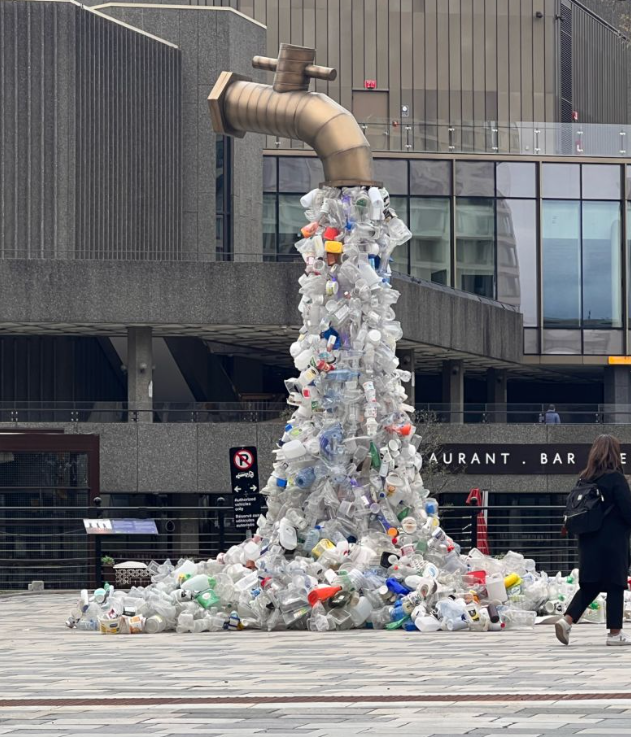Scope, Measures, and More: What to Expect at INC-4 on Plastic Treaty Negotiations
The world grapples with a growing plastic pollution crisis. Millions of tons of plastic end up in our oceans every year, harming marine life and ecosystems. To address this pressing issue, the United Nations Environment Programme (UNEP) established the Intergovernmental Negotiating Committee (INC).
This is the fourth in a series of five meetings where world leaders, country representatives and civil society organisations from over 174 countries will gather to discuss and negotiate a legally binding instrument to curb the plastic crisis. Last November, the third session of the Intergovernmental Negotiating Committee (INC-3) was held at Nairobi, Kenya and played a critical role in setting the stage for the INC4 negotiations. The long hours spent at INC-3 (13 hours on Day 3 alone!) reflected the dedication and urgency involved in tackling this global crisis. The groundwork laid during this session has paved the way for more focused discussions and potential breakthroughs at INC-4 in Ottawa.
This year, we eagerly anticipate INC-4, scheduled for April 23-29, 2024, in Ottawa, Canada.
So, what is INC-4?
INC-4 is the fourth session of the committee tasked with developing a global, legally binding instrument to tackle plastic pollution, specifically focusing on its impact on the marine environment. This international treaty aims to:
Reduce plastic production and use: Encourage a shift towards sustainable materials and responsible consumption.
Promote waste management: Improve waste collection, sorting, and recycling infrastructure globally.
Combat plastic leakage: Address the issue of plastic entering the environment unintentionally.
Hold polluters accountable: Establish a framework for holding manufacturers and producers responsible for plastic waste management.
Why is INC-4 Important?
The successful negotiation of a robust plastic pollution treaty has the potential to be a game-changer. Here’s why:
A unified global approach: A single, international treaty will ensure all countries are working together to tackle this problem, preventing a patchwork of national regulations.
Reduced plastic pollution: The treaty can lead to significant reductions in plastic production and use, protecting our environment and ecosystems.
Innovation and investment: The treaty can incentivize the development of sustainable alternatives to plastic and more efficient waste management solutions.
Just Transition for Waste Pickers: A critical element of the treaty should be ensuring a just transition for the millions of informal waste pickers who play a vital role in the global waste management system. The treaty should recognize their contribution and support their integration into formal waste management structures, providing them with social protections, improved working conditions, and access to healthcare.
What to Expect at INC-4?
This session will be a crucial platform for governments from around the world to discuss and refine the draft text of the new international plastic treaty. Key areas of focus will include:
Scope and Ambition: Negotiators will determine the types of plastic pollution the treaty will address across its lifecycle. This includes considerations for microplastics, single-use plastics, and plastic production itself.
Concrete Actions: Discussions will focus on specific measures countries will implement to reduce plastic pollution. This could involve production bans for certain plastic items, design requirements for better waste management, and promoting plastic alternatives.
Financing and Capacity Building: Developed nations will explore ways to support developing countries in implementing the treaty effectively. This includes financial aid and technology transfer for waste management infrastructure and sustainable alternatives.
Addressing the Waste Pickers Community: Ensuring a just transition for waste pickers will be a key consideration during discussions. The treaty should include provisions for supporting their livelihoods, improving their working conditions, and integrating them into formal waste management systems.
The success of INC-4 hinges on international collaboration and commitment. By working together, nations can establish a robust framework to combat plastic pollution and pave the way for a cleaner, healthier planet.
Stay tuned for further updates and developments from the INC-4 session!

